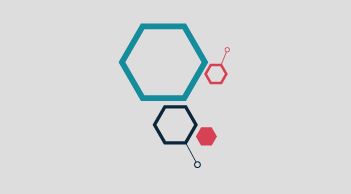-
TrendsHealthcare
-
SectorHealthcare and Pharmaceutical Industry
-
CountriesGlobal
It is estimated that, as of today, 1 out of every 2 men and 1 out of every 3 women will have cancer throughout their lives, making the disease one of the most important healthcare problems in the world. Faced with this reality, at the Spanish Association Against Cancer (AECC) we have set the goal of reaching a 70% survival rate in cancer by 2030. To achieve it, it is essential to promote oncology research and to guarantee patient access to its results, thus ensuring that everyone has access to medicine and its most innovative treatments.
According to the latest data, the average cancer survival rate increases by approximately 0.6% every year, mainly thanks to research, which makes it possible to have more effective treatments. But it is a task that requires a firm and sustained commitment.
Although this data brings hope and indicates that oncology research has gradually advanced in the last few years, we still have a long way to go in order to reach significant progress in cancer and to improve the quality of life of thousands of patients. A clear example is the fact that in 2020 Spain dedicated 333.1 euros per citizen to R+D, 6% more than in 2010. However, if we compare this investment with that of our neighboring countries, our numbers are notably lower, making us the country with the least growth since 2010. For example, in the same period of time, Germany’s investment increased by 48%, France’s by 19.8% and Italy’s by 28.3%.
Joining forces to reach the 70% survival rate
At the Spanish Association Against Cancer we have been supporting patients for 70 years, working to relieve and avoid –however possible– the suffering caused by cancer, regardless of the patient’s place of residence and personal circumstances. For over 50 years we have been fostering oncology research through our Scientific Foundation, with the aim of providing answers for the big challenges generated by this disease.
The support of public and private entities is essential to complement public investment and boost oncology research to improve diagnostic techniques and cancer treatment, and to achieve the development of specific actions that will allow us to keep progressing and raising awareness on the importance of research.
Our initiative “Todos Contra el Cáncer” (Everyone Against Cancer) was born from this need of collaboration, a social movement that seeks to involve citizens, companies and institutions in the fight against cancer to reduce mortality rates, guaranteeing the survival of many patients and improving their quality of life.
We reaffirm our commitment with research year after year. In fact, in 2022 we reached an all-time record in our organization: we surpassed 24.5M€ in 195 grants to the research of new solutions to improve the patients’ quality of life and increase their survival, our largest investment to date in cancer research.
Equity and research: a pending equation
When talking about research, we also refer to inequality. A clear example of this is the fact that every year Spain diagnoses more than 100,000 people with a tumor with a survival rate lower than 30%. Furthermore, between 22% and 24% of new cancer cases are rare tumors with few treatment options, mainly because not enough resources are allocated to their research. Because of this, it is crucial to promote cancer research with the goal of guaranteeing that all patients have access to its results, which, in these types of tumors, translates into more research to improve survival margins.
To reclaim this need, on the occasion of World Cancer Research Day we organized an event in London alongside other leading organizations in Europe, an event where we presented the need to reach equity and to incorporate diversity in populations used in cancer research around the world.
Promoting research talent in Spain
Another challenge related to cancer research still to be addressed is the continually “aged” profile of researchers in Spain, with an average age of 50 since 2014. In the last 4 years, we have not perceived an improvement in terms of female leadership or in the entry of young talent into cancer research. These findings keep pointing to a difficulty in consolidating research talent, which jeopardizes the sustainability of cancer research in the long run.
In order to face this problem, at the Association we offer grants to researchers with the goal of providing answers to clinical needs, as well as covering the needs of the scientific community so that they can carry out their work in Spain. These grants cover different levels: from younger profiles looking for internships, to postdoctoral senior profiles that are carrying out their own research.
In short, we cannot prevent cancer from affecting our society, but what is in our hands is how we deal with it. To this end, it is crucial to foster oncology research with the aim of increasing survival and thus improving the lives of thousands of patients. To achieve it, we must collaborate by joining forces and resources. Because only if we all come together will we be able to effectively fight cancer.
Yolanda Domínguez Vega
Director of Communication and Branding at the Spanish Association Against Cancer.



